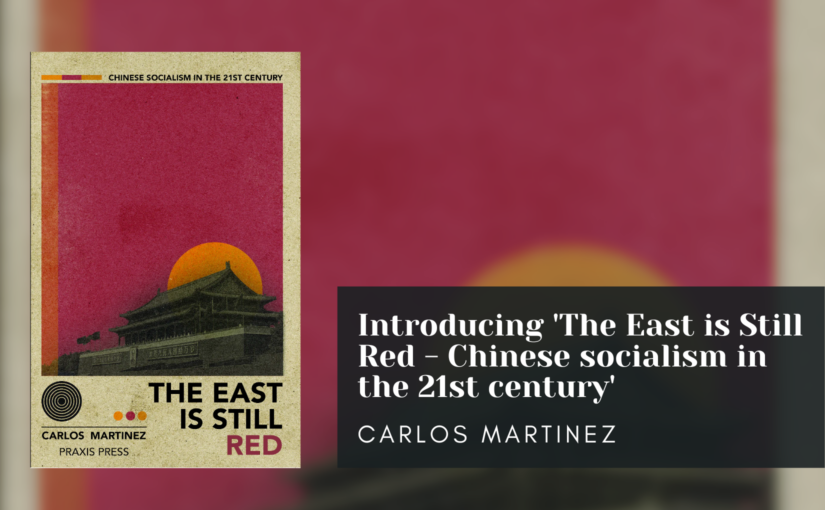Friends of Socialist China co-editor Carlos Martinez was interviewed by Sean Blackmon on the Sputnik Radio show By Any Means Necessary about his new book, The East is Still Red – Chinese socialism in the 21st century.
Carlos talks about his motivations for writing the book, the crucial importance of opposing the US-led New Cold War, the necessity for Marxists to understand and defend Chinese socialism, and the ever-contentious question of whether contemporary China is indeed socialist.
The full interview can be viewed on Rumble.
Find out more about the book | Buy the book | Join the book launch on 4 June 2023


Thanks you Carlos for your book and this video, supporting as you do Socialism with Chinese characteristics. Let us hope that a critical mass of serious observers of global governance get to learn from your work and that of the FOSC.
China’s cultural inheritance is such that it has been able to transition between being a dominant state power and being a defeated state throughout numerous previous era. Our modern post industrial era is no exception, with China once again re-emerging as a dominant state power. China is in effect demonstrating to the world that because Information Technology (IT) and Artificial Intelligence (AI) now influences so much of human story telling and behaviour; that the time, effort, intelligence and taxes being spent by liberal democratic multi party forms of governance in which such political parties are bound to oppose each other – no matter what and occasionally going so far as resorting to violence; that this is now an unnecessary and relatively inefficient form of governance. So called Chinese ‘Netizens’ are in effect demonstrating how IT and AI can now put such political resources and effort to much better use; thereby providing themselves with a more sophisticated single party form of governance using what the CPC refers to as ‘whole process people’s democracy’; a form of democracy and governance that has proven over recent decades to be relatively more capable than most – if not all other forms, of meeting people’s social and cultural needs.
That red glow in the East is not only the Rising Sun; it is Socialism with Chinese Characteristics.